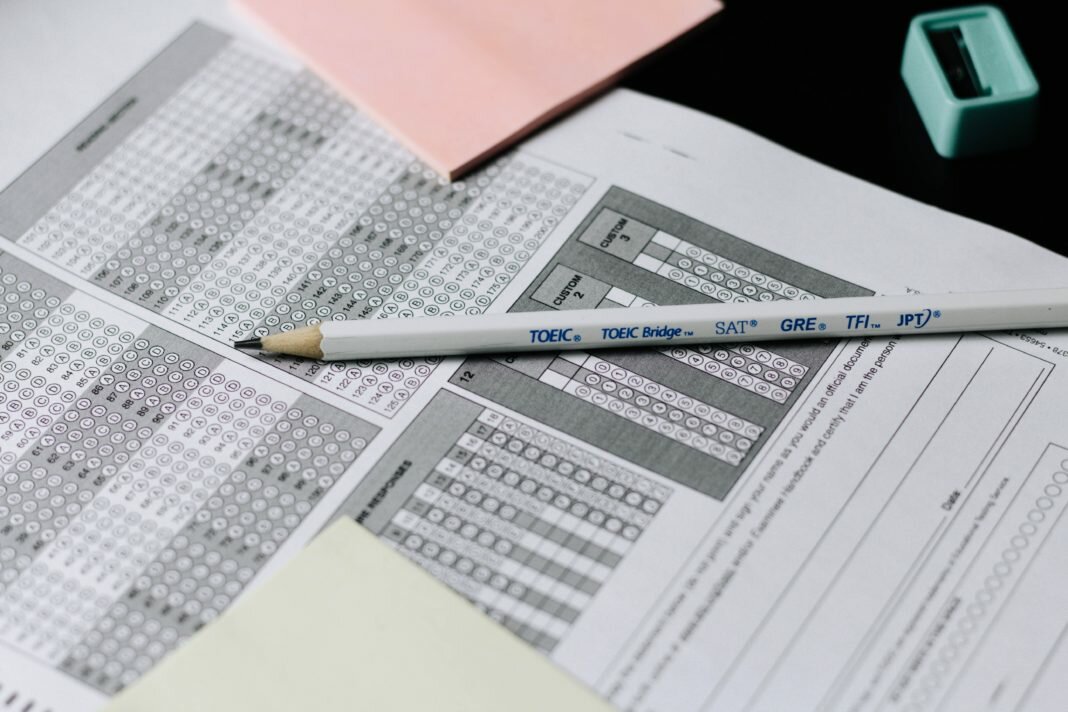Brief • 3 min Read

A recent survey by Yahoo Finance and The Harris Poll finds that, while most Americans see the value in standardized testing to measure student performance and potential, they ultimately think universities should do away with standardized tests like the SAT and ACT.
Most Americans believe that standardized tests serve as an objective measure for colleges looking to compare students across the U.S. (71%), correctly measure a student’s academic knowledge and skills (58%), and serve as accurate indicators of how well students will do with college-level coursework (57%).
Even so, Americans still agree that grades are more important than test scores when evaluating applicants. Three in five Americans (62%) agree that high school grades are a better measure of a student’s success in college than standardized test scores. About the same amount (60%) agree U.S. colleges and universities should stop requiring standardized test scores for applicants altogether. Students (68%) and young Americans (73% of 18-34-year-olds) are support this view even more often.
It’s unsurprising, then, that Americans ranked high school grades as the number one metric (58%) college admissions departments that don’t require standardized test scores for applicants should use to evaluate student applications.
Evaluating education inequalities
Overall, Americans say perceived bias in standardized tests has more to do with affluence than race. Just over half (51%) of Americans agree standardized tests are inherently biased in favor of affluent students. In fact, those in households with annual incomes of $100,000+ agree even more often (54%).
Most Americans (62%) also agree standardized test help low-income students by offering an additional metric for those who would have been rejected based on grades alone.
However, most Americans disagree that standardized tests are inherently biased in favor of White and Asian American students (58%), and they disagree that tests are inherently biased against Black and Hispanic students (57%).
Ethnic minorities, though, are say more often that they see bias across both wealth and race. Compared to less than half of White Americans (44%), most African (73%), Hispanic (58%), and Asian Americans (61%) agree that standardized tests favor affluent students.
Compared to 36% of White Americans and 43% of Asian Americans, most African and Hispanic Americans (61% and 57%, respectively) also believe that standardized tests are inherently biased in favor of White and Asian Americans. Compared to 36% of White Americans and 45% of Asian Americans, most African and Hispanic Americans (67% and 54%, respectively) also believe that standardized tests are inherently biased against Black and Hispanic Americans.
Perhaps consequently, Americans of color show greater support for race/ethnicity as an admission metric in lieu of standardized test scores compared to White Americans (35% of Asian, 31% of Hispanic, and 18% of African Americans vs. 12% of White Americans).
What should universities use instead?
Aside from high school grades (58%), criteria such as interviews (49%), teacher recommendations (47%), and academic/extracurricular awards (41%) were the top metrics Americans said should be used to evaluate students in lieu of standardized test scores.
More young adults think that applicant evaluations should extend outside of school. Compared to those over 55, Americans ages 18-34 were less supportive of traditional metrics like grades (74% vs. 41%, respectively), interviews (62% vs. 39%), and recommendations (57% vs. 38%). However, they showed stronger support for more holistic measures such as race/ethnicity (8% vs. 24%) and the average household income of an applicant’s neighborhood (9% vs. 17%).
Hearing from those on the ground
Looking to those with college experience, and more specifically those currently in higher education, may actually present a better picture of how useful current college admissions practices are. In fact, those with university experience are less supportive of standardized testing and traditional admissions metrics compared to those with no college experience and those who are no longer in college.
Current students do not view standardized tests as an accurate estimation of knowledge and university success. Most disagree that standardized tests serve as accurate indicators of how well students will do with college-level coursework (54%).
In addition to believing there is a wealth bias (60%), they also see an ethnicity bias in standardized testing. Unlike the general public, most students actually agree that standardized tests are inherently biased in favor of White and Asian students (56%) and agree that standardized tests are inherently biased against Black and Hispanic students (61%).
Students are also willing to consider a broader range of admissions metrics than most adults. Compared to 17% of the general public, 26% of students say race/ethnicity should be considered by schools that don’t require standardized test scores. However, they are much less likely than the general population to support extracurricular involvement (34% gen pop vs. 24% students) and awards (39% gen pop vs. 22% students) as metrics to be used by schools that don’t require standardized test scores.
Like current students, those with at least some college education show less support for standardized tests as an accurate measure of college preparedness compared to those without college experience.
Compared to 63% of those with no college experience, only half of those with at least some college education agree that standardized tests serve as accurate indicators of how well students will do with college-level coursework. Fewer Americans with college experience also agree that standardized tests correctly measure a student’s academic knowledge and skills compared to those with no college education (55% vs. 63%, respectively).
Although the College Board recently dropped the essay portion and subject tests from its SAT exam, a simplified test may not be enough. It’s clear that Americans, and students especially, want universities to reconsider how they gauge student potential and admission.
Methodology
This survey was conducted online within the United States by The Harris Poll on January 22-25, 2020, among 1,000 U.S. adults ages 18 and older. This online survey is not based on a probability sample and therefore no estimate of theoretical sampling error can be calculated. Figures for age, sex, race/ethnicity, education, region and household income were weighted where necessary to bring them into line with their actual proportions in the population. Propensity score weighting was used to adjust for respondents’ propensity to be online. For more information on methodology, please contact Dami Rosanwo.
Subscribe for more Insights
Subscribe to our newsletter for the latest trends in business, politics, culture, and more.
Download the Data
Get the full data tabs for this survey conducted online within the United States by The Harris Poll on behalf of Yahoo Finance between January 22-25, 2020, among 1,000 U.S. adults ages 18 and older.
Download
Subscribe for more Insights
Subscribe to our newsletter for the latest trends in business, politics, culture, and more.
Download the Data
Get the full data tabs for this survey conducted online within the United States by The Harris Poll on behalf of Yahoo Finance between January 22-25, 2020, among 1,000 U.S. adults ages 18 and older.
DownloadRelated Content








